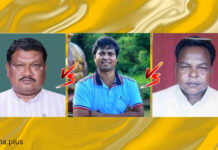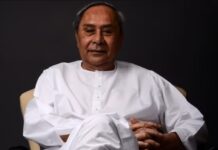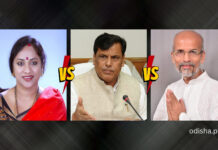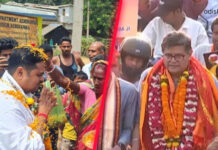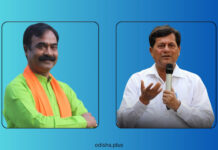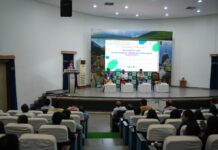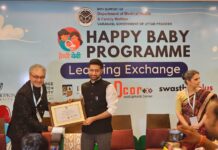Kailash Chandra Dash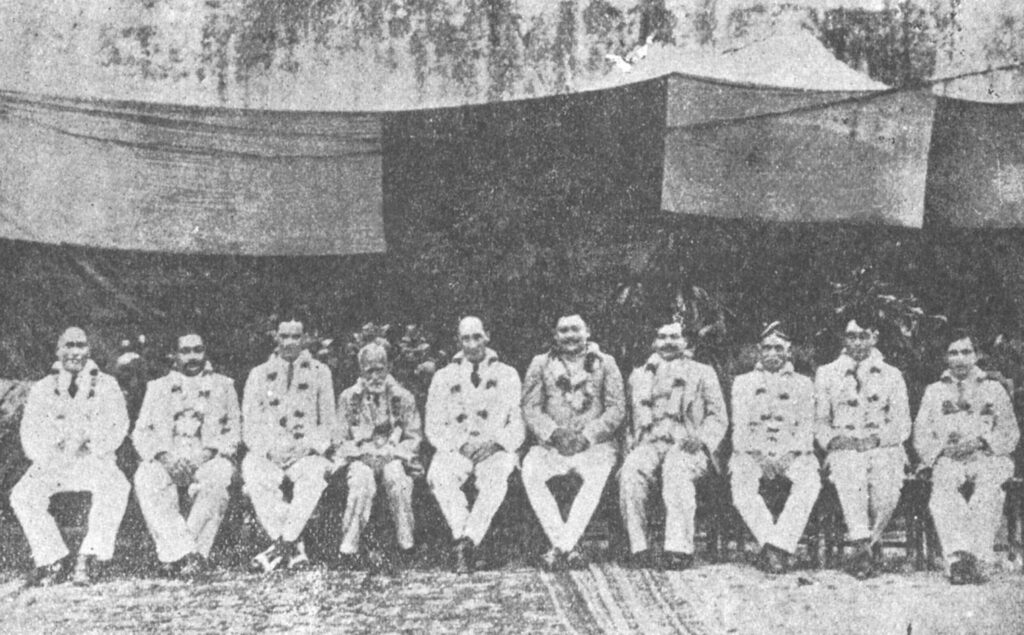
The Utkala Sammilani which had its first session in the month of December 1903 come into existence and Madhusudan had a significant role in its formation and consolidation. On 25th October 1903 Madhusudan called a meeting at Kanika palace. About twenty five to thirty people of Cuttack were present on that occasion. As proposed by the Raja of Kanika, the Raja of Keonjhar became the president of the meeting. (UtkalaDipika, 31st October,1903) Madhusudan presented the purpose of the meeting in the beginning.
He said that there was a meeting for the formation of Odia Jatiya Samiti (Odia national organisation) at Berhampur in 1903 and that some people of Cuttack and Sambalpur including himself had participated in it. He proposed in the meeting at Kanika palace that in 1903 there would be a session at Cuttack in which both people from Ganjam and other places in Odisha would participate. In the meeting he also proposed that every year people of different places of Odisha should make sessions at different places where they would discuss their common problems.
Gaurishankar Ray, the Editor of UtkalaDipika, had also accepted the proposal of Madhusudan for holding conferences at different places in Odisha to discuss issues affecting the Odia national life and progress. It was decided on that day that on 30th and 31st December of that year (1903) the proposed session would be held at Cuttack. It was accepted as a national organisation by the Odias. This organisation would discuss problems on the progress of the society, education and industry. It would not take up issues on politics and religion. At the end of the meeting an executive committee was formed for the session.
The president of that committee was the Raja of Kanika. Madhusudan became its Secretary. Jayram Das, Samson Rout, Gopal Chandra Praharaj and Abhiram Bhanja became the Joint secretaries of the committee.(Ibid.) The executive committee had eight sessions from 15th November 1903 to 24th December 1903 for a spectacular success of the first session of the Conference. In the beginning it was decided by the committee that the august session would be presided by Sir Sudhal Deb, the Maharaja of Bamanda.
But as he died shortly, the Maharaja of Mayurbhanj was invited to be the president of the session. The site of the session was Idga Padia of Cuttack which the Zamindar of the area Nagendranath Ray Choudhury left without rent for three months. The committee decided that the delegates would put on red turbans as symbol of their nationalism. All the arrangements were made by the committee which was actually guided by Madhusudan Das.
Madhusudan came to know that by the order of the Government some officers would not participate in the session. Immediately he sent a telegram to the Bengal Government about this problem. The Bengal Government sent a reply that the Government officers would not be forbidden to take part in the conference if it promised not to discuss problems of political agitation. For the successful working of the session student volunteers were employed and this was due to Madhusudan who wanted the young men of Odisha to be active for the service of the motherland.
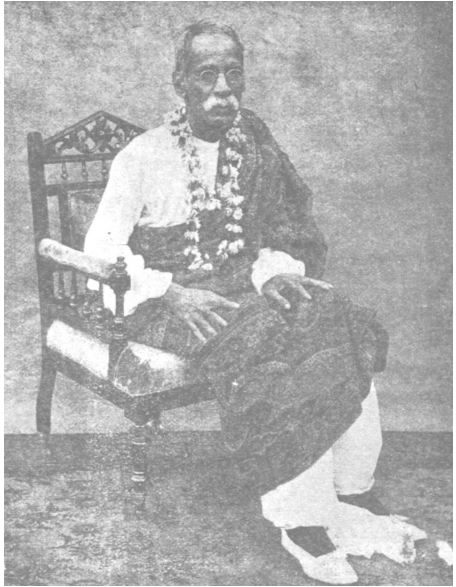
On the first day of the session after the resolutions were passed Madhusudan stood up to deliver a very interesting speech which formed a part of his nationalist discourse.(Ibid.) He stated that “in the fixed ocean there is one image of the moon, but when it flows with waves, many images appear.” “As I see my brothers my heart is filled with the waves of love and I am very glad to see them. Hindus believe that the eight metals when united become such a metallic substance which does many useful works. Hence this brotherly love would animate the newly created Utkala Sammilani to such an extent that it would undertake many useful and auspicious works.
According to History people from different places came to England and settled there. This union helped in the making of the English race. The English people had great contribution to the progress in Europe. We must consider this in the context of our motherland. Now looking at the suffering of mother Utkala who amongst us would not be serious? Hence we all being united would share her suffering and serve her. While in this deep service my brothers must remember a statement of the prophet Muhammad – for the spread of brotherly love one should give up impure element from the heart and allow pure and pious blood into it.
My brothers who want to dedicate their lives for the service of the mother Utkala must at first give up self conceit and selfishness. The race or nation is eternal, you and myself have temporary existence. The only way to progress is to give up selfishness. it will be admitted by all that the water of the river and lake coming from different directions will enter into the ocean where it will take one shape and one colour. It will be called the water of the ocean and will take the name of the great ocean (Mahasagara)”.(Ibid.) This speech of Madhusudan in the first session of the Utkala Sammilani animated the Odias to go ahead with the mission.
Madhusudan was the secretary of the reception committee for the second session of the Utkala Sammilani. In order to activate the young men of Odisha in the direction of the making of New Odisha he formed a body called Young Utkala Association which rendered great service to the Sammilani of the second year. It became a part of the Sammilani from that session.
Madhusudan’s efforts in the organisation of the Utkala Sammilani led to a great awakening in Odisha. The Sammilani became the most important nationalist forum which united the Rajas of different Garjat states in Odisha with the rural landlords and elites. Odias got a forum to represent the long standing problem— the amalgamation of the different Odia speaking tracts. Existence of all Odias within one boundary would help in articulating their identity. The Conference had also another notable object, the economic and industrial regeneration of Odisha and for that Madhusudan was more serious.
Madhusudan himself presided over the 9th session of the Conference which was held at the field near RamachandiSahi at Puri on the 29th and 30th December of 1913. (Utkala Dipika, January 3,1914) As Madhusudan entered into the meeting pendal all the delegates stood up with the slogans— Jai Utkala Janani . There he presented his discourse which animated the delegates present. In his address he said- “If we accept the Conference as a stage of the progress of Utkala we must understand the meaning of the Conference.
Like the union of the lifeless objects and animals, human beings have their union. The carpenter unites two pieces of woods. The animals are united due to fear for the enemy. Vapour and wind in union produce water. But vapour goes upward and water goes downward. The individual life of the Conference must perish for the formation of national life. The Conference belongs to the Utkaliyas. Like German and English, Utkala is a race. Those who want to glorify by the glory of the past of Utkala and want her prosperity they should have self-examination. Self-examination is very difficult. National objectives cannot be accomplished within one day, one month and one year. It demands time. Life is meant for service to others and the development of the nation.
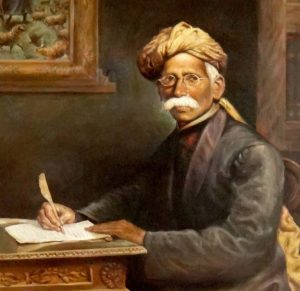
It is of two kinds-individual life and national life. The first is related to the body and worldly events and the second is related to the soul. If someone taunts me for being an Odia, thousands of Odias associated with me will be shocked and wounded. It is called the national life. Like an individual a race has defects. At one time Japanese like the Chinese used to keep pigtails and the English identified them as Chinese. This wounded the national sentiment of the Japanese and for that they stopped the practice. A small dog does not fear a powerful tiger at the first sight. He advances towards the tiger. He has no power to kill a tiger. If he tries he has to accept death. Then why does he advance towards the tiger? He will die, but his group will not be humiliated. Hence in Utkala everybody should look to the prosperity of the national life.
(Part 2 of the article Madhubabu and the Articulation of Odia Identity by Kailash Chandra Dash)

